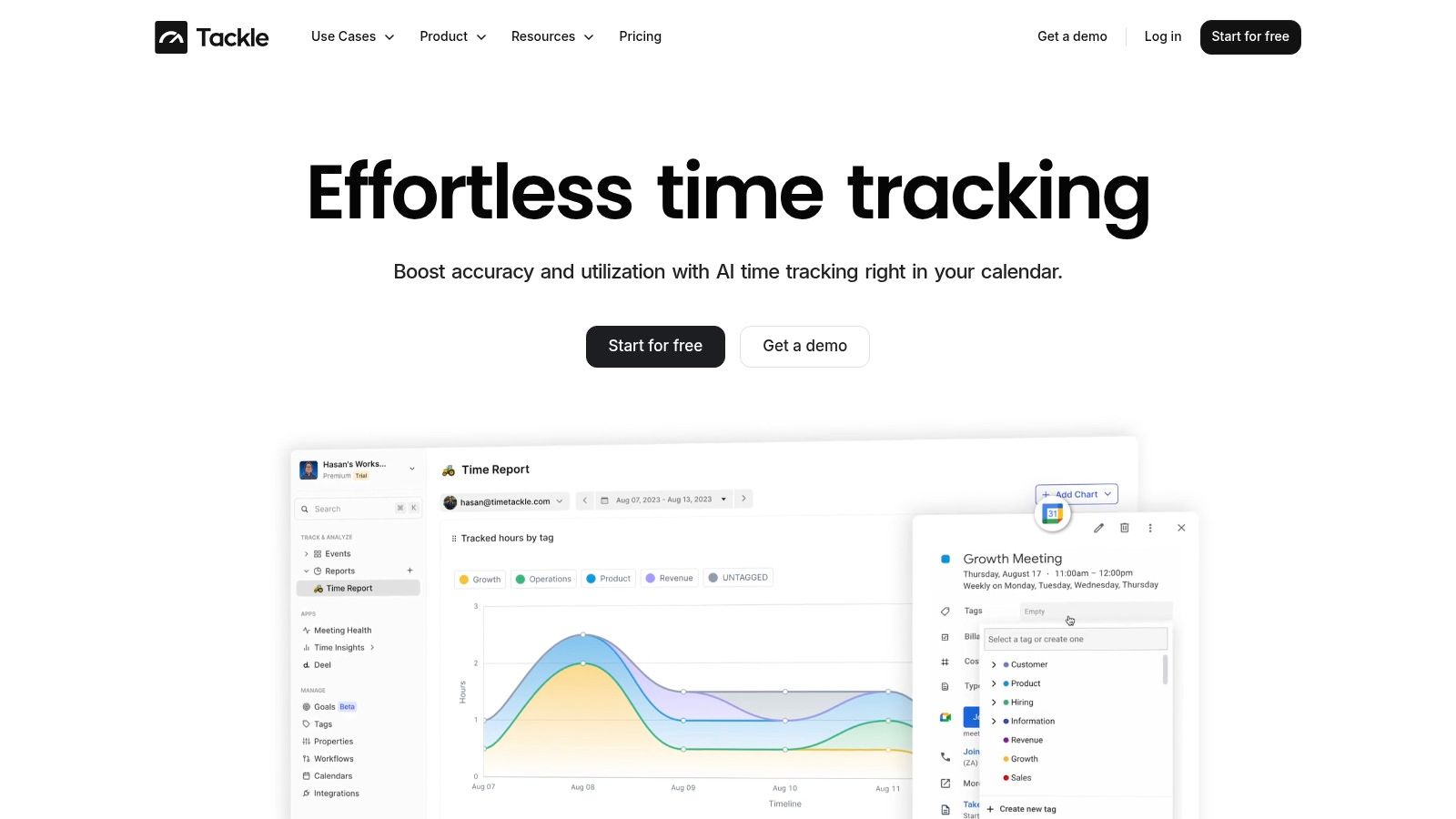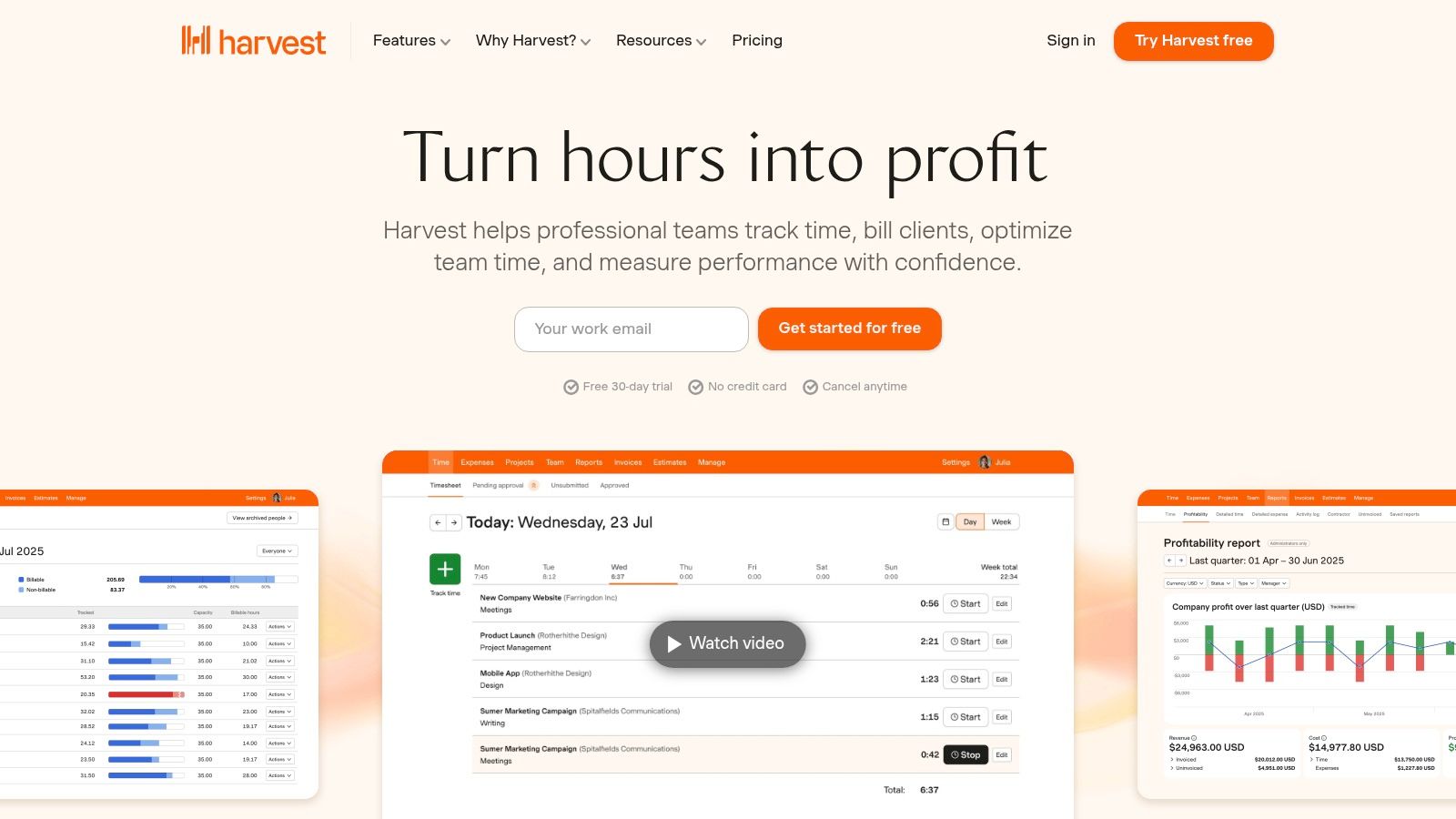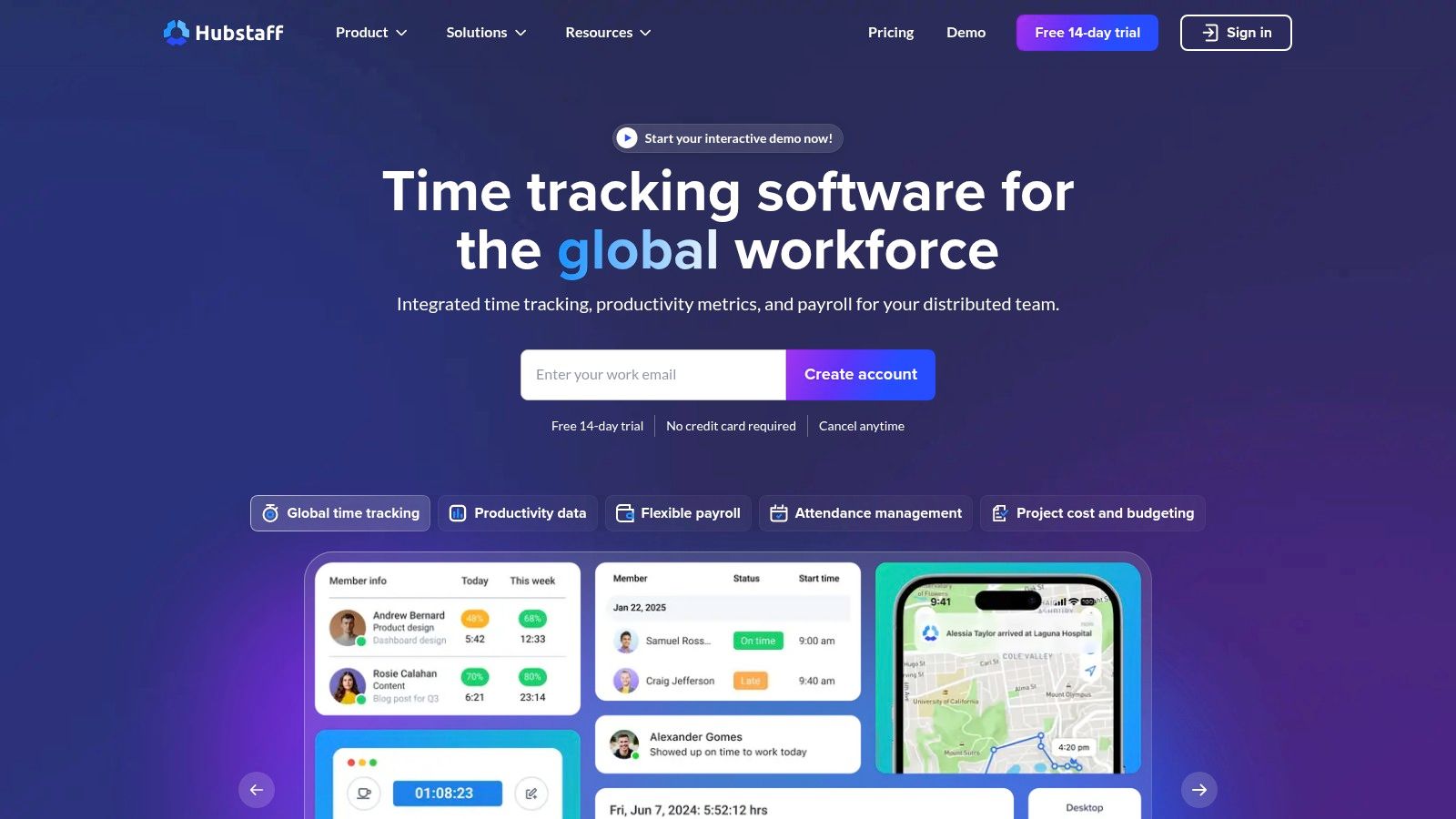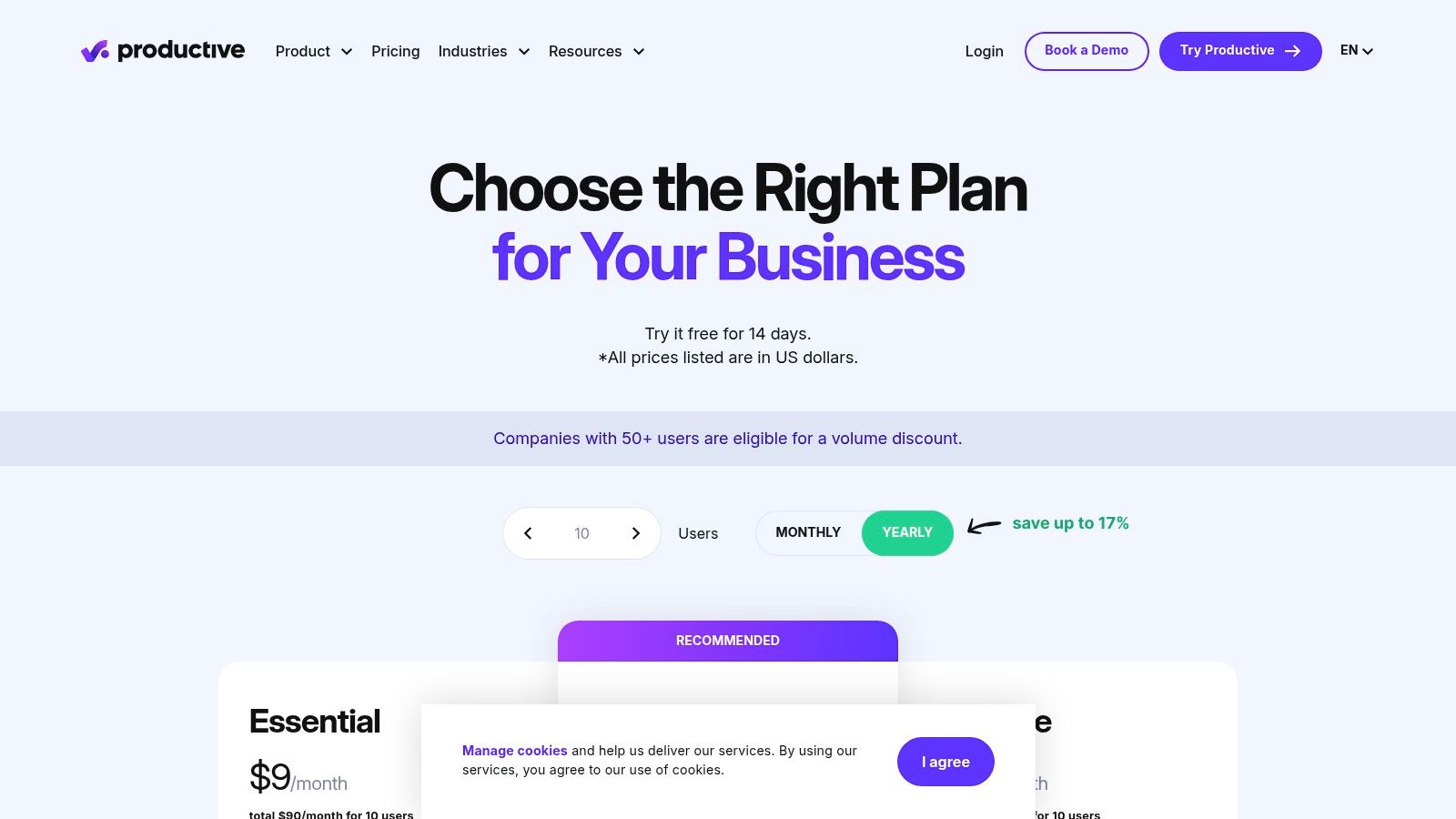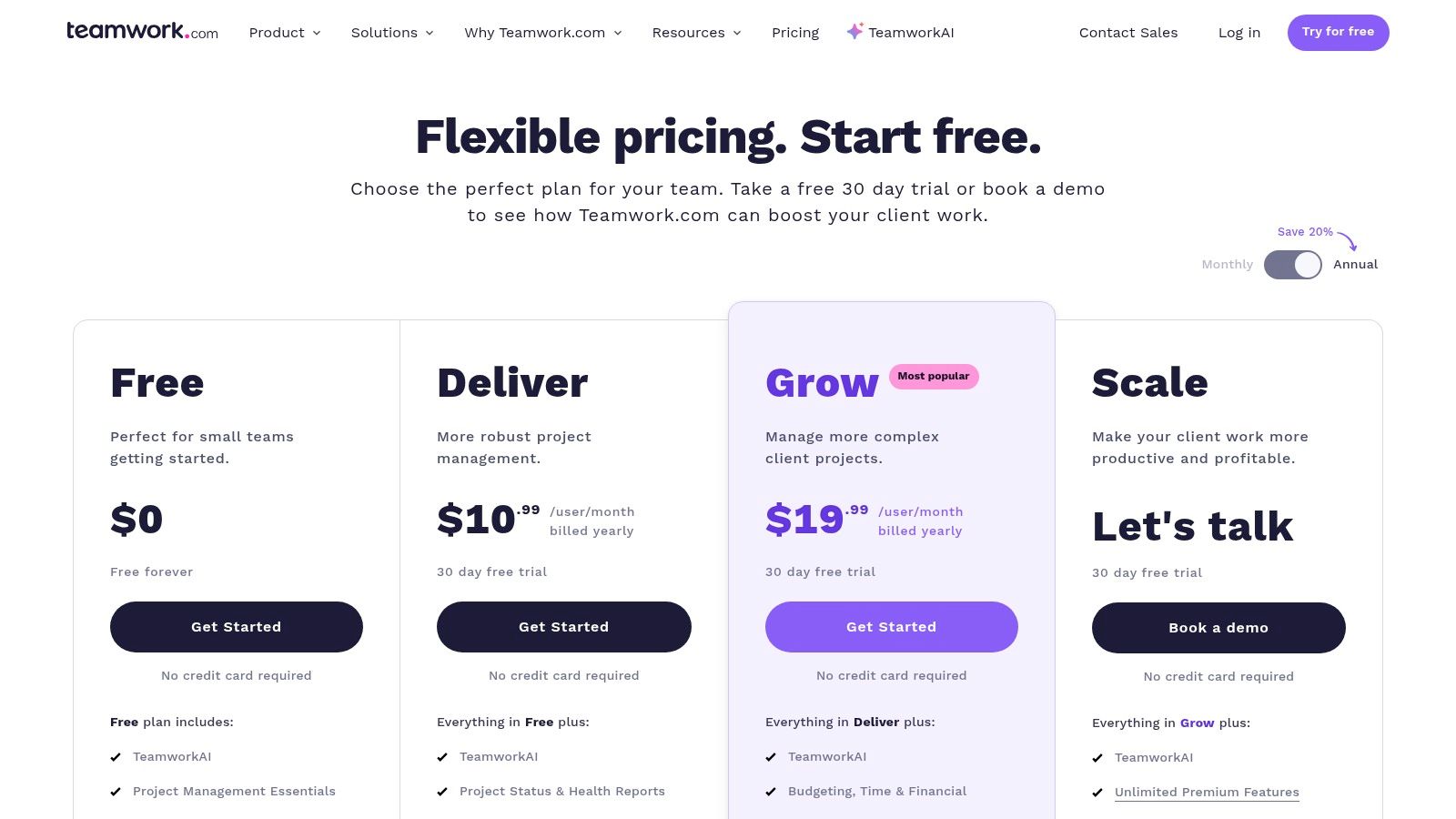For any mid-sized agency, from creative and marketing to consulting and financial services, profitability isn't just about winning big contracts. It's about accurately understanding where every billable hour goes. Without a clear view of time allocation, you're essentially flying blind, struggling with inconsistent timesheets, manual reporting overhead, and a foggy picture of project profitability and team utilization. This is where dedicated agency time tracking software becomes a non-negotiable asset.
These platforms do more than just count minutes; they transform raw time data into actionable business intelligence. They solve critical operational pain points, from reducing timesheet fatigue for your team to providing COOs and project managers with the real-time visibility needed for precise resource planning and forecasting. The right tool automates the tedious work of compiling reports, freeing up valuable time for strategic decision-making. Beyond just tracking hours, understanding how those hours translate into tangible business results is key. For a deeper dive into optimizing your agency's client outcomes, consider this practical guide on improving conversion rates.
This guide cuts directly to the chase. We've compiled an in-depth comparison of the leading agency time tracking solutions, including TimeTackle, Harvest, Toggl Track, and more. For each tool, you’ll find a detailed breakdown of its core features, pricing structures, and ideal use cases, complete with screenshots and direct links to help you evaluate your options efficiently. Our goal is to help you move beyond guesswork and select the software that will directly boost your agency's efficiency and bottom line.
1. TimeTackle
TimeTackle stands out as a powerful, AI-driven platform specifically engineered to solve one of the most persistent challenges for modern agencies: timesheet fatigue. Instead of relying on manual start-stop timers or after-the-fact guesstimates, TimeTackle transforms your team's existing digital calendars (Google and Outlook) into an automated, highly accurate time-tracking engine. This calendar-centric approach makes it an exceptional piece of agency time tracking software for firms looking to capture work data passively and gain deep, actionable insights without disrupting creative or operational workflows.
The platform is built on the premise that if an activity is in a team member's calendar, it represents time spent. TimeTackle automatically captures these events, allowing agencies to categorize them with unparalleled flexibility. Using custom tags, properties, and rule-based automations, you can effortlessly link calendar entries to specific clients, projects, tasks, or even sales opportunities. This eliminates the manual burden of timesheet entry and ensures that all billable and non-billable hours are accounted for with precision.
Key Features and Agency Use Cases
TimeTackle's strength lies in its ability to translate raw calendar data into strategic business intelligence. Its dynamic, real-time dashboards provide immediate visibility into crucial agency metrics.
- Automated Time Capture: The core feature is its direct integration with calendars. An agency can set up rules like, "any calendar event with 'Client X' in the title is automatically tagged as billable and assigned to the 'Client X Q3 Campaign' project." This automation drastically reduces administrative overhead and improves data accuracy.
- Deep Customization and Reporting: Agencies can create a tracking system that mirrors their unique structure. Use custom properties to track things like "Phase," "Task Type," or "Location." The visual workflow builder allows operations leaders to design and automate complex reports, such as monthly client profitability analyses or team utilization forecasts, without manual spreadsheet manipulation.
- Advanced Analytics and Integrations: The platform doesn't just collect data; it helps you analyze it. Get instant insights into project ROI, team capacity, and operational efficiency. For more advanced needs, TimeTackle offers robust export options (Excel, CSV, PDF, Google Sheets) and an API, enabling you to sync data with your data warehouse or other business intelligence tools for deeper analysis.
- Enterprise-Grade Security: With SOC 2 Type II certification and robust encryption, TimeTackle ensures that sensitive client and project data is protected, a critical requirement for agencies handling confidential information.
Why It's a Top Choice for Agencies
For a mid-sized marketing, creative, or consulting agency, TimeTackle directly addresses the friction points of traditional time tracking. It replaces the daily annoyance of filling out timesheets with a seamless, automated process that runs in the background. This not only boosts employee morale but also provides leadership with a far more accurate and real-time view of resource allocation.
The ability to analyze time spent against sales opportunities in a CRM or track engineering resources against a product roadmap makes it versatile beyond just client services. It empowers operations leaders and CFOs to make data-driven decisions on staffing, pricing, and project scope.
Practical Tip: Leverage the Chrome extension to quickly tag and categorize unscheduled work or meetings directly from your browser, ensuring even ad-hoc tasks are captured without navigating away from your workflow.
Pros & Cons
| Pros | Cons |
|---|---|
| AI-powered automatic time capture from calendars eliminates manual entry and timesheet fatigue. | Pricing is not publicly listed and requires a demo, which can slow down the initial evaluation process. |
| Highly customizable with tags, properties, and rule-based automations for tailored tracking. | The extensive customization and advanced features may present a learning curve for some teams. |
| Real-time dashboards provide deep insights into utilization, profitability, and project ROI. | |
| Robust data export, API access, and data warehouse sync for advanced analytics. | |
| SOC 2 Type II certified, ensuring top-tier data security for sensitive client information. |
Best For: Mid-sized agencies (50-200 employees) that are struggling with timesheet compliance and need a scalable, automated system to improve operational visibility, resource planning, and billing accuracy.
Learn More: https://www.timetackle.com
2. Harvest
Harvest has long been a go-to choice for creative and digital agencies, earning its place by mastering the fundamentals: simple time tracking linked directly to invoicing. Its strength lies in an intuitive, user-friendly interface that minimizes friction for team members, making it one of the easiest agency time tracking software solutions to adopt with minimal training. The platform’s core philosophy is to connect the hours your team works directly to the revenue they generate.
This streamlined workflow allows agencies to move seamlessly from tracking billable hours to creating and sending professional invoices. With integrated payment gateways like Stripe and PayPal, clients can pay directly from the invoice, shortening the payment cycle and improving cash flow.
Core Features and Use Cases
Harvest excels at providing a clear, end-to-end view of the project lifecycle from a financial perspective. It’s not just about logging hours; it’s about understanding what those hours mean for your bottom line.
- Time & Expense Tracking: Team members can track time to specific clients, projects, and tasks using web, desktop, or mobile apps. The desktop app includes helpful features like idle time detection and reminders, nudging employees to keep their timesheets accurate.
- Invoicing & Payments: Convert tracked hours and logged expenses into detailed invoices with just a few clicks. The system pulls all relevant data, calculates totals, and allows you to send invoices directly to clients.
- Reporting & Analysis: The Pro plan unlocks crucial reporting features. Agencies can run project budget reports to monitor progress against estimates, analyze team capacity to see who is overworked or underutilized, and generate profitability reports that show which projects are truly driving revenue.
Practical Tip: Use Harvest's project budget alerts to stay ahead of scope creep. Set a percentage threshold (e.g., 80% of budget spent) to automatically notify project managers, giving them time to address potential overages with the client before it becomes a problem.
Who is it Best For?
Harvest is an ideal fit for small to mid-sized agencies that prioritize a straightforward, reliable system for time tracking and invoicing. Its simplicity is its biggest asset, making it perfect for creative, marketing, and consulting firms that don't need the complexity of a full-blown professional services automation (PSA) suite. While it offers powerful features, those seeking in-depth resource planning or advanced forecasting may find its capabilities limited. You can explore more about Harvest and its alternatives if your agency's needs are more complex.
| Plan | Price (per user/month) | Key Features |
|---|---|---|
| Free | $0 | 1 user, 2 projects |
| Pro | $12 | Unlimited users and projects, advanced reporting |
Website: https://www.getharvest.com
3. Toggl Track
Toggl Track is celebrated for its radical simplicity and user-centric design, making it a powerful contender in the agency time tracking software space. Its core appeal lies in its nearly frictionless time entry, which significantly boosts team adoption. The platform is built around a one-click timer that can be accessed via web, desktop, and mobile apps, or through a browser extension, encouraging consistent and accurate time logging without disrupting creative or technical workflows.
This ease of use is Toggl Track’s primary differentiator; it removes the common barriers that lead to timesheet fatigue and inaccurate data. For agencies struggling to get their teams to consistently track hours, Toggl’s intuitive interface and minimal learning curve can be a game-changer. It integrates seamlessly into existing toolchains, with over 100 integrations including Jira, Asana, and Salesforce.
Core Features and Use Cases
Toggl Track excels at capturing time data effortlessly and transforming it into actionable business intelligence. While it keeps the front end simple for users, the back end provides robust reporting and project management capabilities for agency leaders.
- Effortless Time Tracking: The signature one-click timer allows users to start, stop, and switch between tasks instantly. Features like the Pomodoro timer, idle detection, and tracking reminders help build better time management habits across the team.
- Project Profitability & Budgeting: Set up projects with specific billable rates and time estimates. The system provides real-time visibility into project health, automatically sending alerts when budgets approach their limits, helping prevent scope creep and protect profit margins.
- Advanced Reporting & Analytics: The Premium plan unlocks powerful reporting, allowing managers to analyze team productivity, assess project profitability, and schedule automated reports to be sent to key stakeholders. Timesheet approvals and Single Sign-On (SSO) add layers of control and security for larger agencies.
Practical Tip: Use Toggl Track’s browser extension to integrate time tracking directly into your project management tools like Trello or Asana. This allows team members to start the timer from within a specific task card, automatically populating the project and task details, which eliminates manual entry and improves data accuracy.
Who is it Best For?
Toggl Track is an excellent choice for agencies of all sizes that prioritize ease of use and high team adoption rates above all else. Its generous free tier for up to five users makes it accessible for small teams and freelancers, while its premium features support the needs of growing and mid-sized agencies. However, agencies that require integrated invoicing and payments might find its capabilities limited compared to platforms like Harvest. For those seeking different features, you can find more information about Toggl Track and its alternatives.
| Plan | Price (per user/month) | Key Features |
|---|---|---|
| Free | $0 | Up to 5 users, basic reporting |
| Starter | $10 | Billable rates, time estimates, project templates |
| Premium | $20 | Team reminders, timesheet approvals, project profitability |
Website: https://toggl.com/track
4. Hubstaff
Hubstaff goes beyond simple time logging by integrating powerful productivity monitoring features, making it a strong contender for agencies that manage remote or distributed teams. It combines automatic time tracking with optional workforce analytics, including screenshots, app/URL tracking, and activity levels. This design provides granular insight into how time is spent, helping agency leaders ensure focus and accountability across diverse work environments.
The platform is built for flexibility, catering to office-based, remote, and even field-based agency teams. Its core strength lies in providing a comprehensive suite of tools that link time worked directly to team productivity and payroll, creating a single source of truth for workforce management.
Core Features and Use Cases
Hubstaff is engineered to provide detailed data on team performance and project progress, making it more than just an agency time tracking software. It’s a tool for optimizing workflows and understanding resource allocation at a deeper level.
- Time Tracking & Productivity Metrics: The desktop and mobile apps automatically track time and allow users to see their activity levels based on keyboard and mouse usage. Optional features like randomized screenshots and app/URL tracking provide an extra layer of oversight for remote teams.
- Scheduling & Attendance: Higher-tier plans include employee scheduling, attendance management, and time-off requests, allowing managers to plan team availability and manage shifts directly within the platform.
- Payroll & Invoicing: Hubstaff simplifies payments by calculating hours worked and allowing agencies to set pay rates for each team member. It integrates with payment platforms like PayPal, Wise, and Payoneer to facilitate direct payroll.
- Workforce Analytics: The Insights add-on offers advanced analytics, providing high-level views of project costs, team productivity trends, and budget tracking to inform strategic decisions.
Practical Tip: Use Hubstaff's activity metrics to identify burnout risks or engagement issues. A consistent drop in a team member's activity level could be an early indicator of overwork or disengagement, prompting a supportive check-in from their manager.
Who is it Best For?
Hubstaff is ideal for agencies with remote or hybrid teams that require a higher degree of visibility and accountability. It's particularly well-suited for performance-driven agencies that want to correlate time spent with tangible output. However, the productivity monitoring features, like screenshots, may not align with all company cultures and can feel intrusive to some employees. Agencies considering Hubstaff should have a transparent conversation with their team about its implementation. For those needing a different approach, you can explore several Hubstaff alternatives for team management.
| Plan | Price (per user/month) | Key Features |
|---|---|---|
| Desk Free | $0 | 1 user, time tracking, activity levels |
| Desk Starter | $7 | Per-user reports, payments, 1 integration |
| Desk Pro | $10 | App/URL tracking, payroll, invoicing, unlimited integrations |
| Enterprise | Contact Sales | VIP support, HIPAA/SOC-2 compliance options |
Website: https://hubstaff.com
5. Productive
Productive positions itself as an all-in-one agency management platform, moving far beyond simple time tracking to cover the entire operational lifecycle. Designed specifically for professional services, it integrates time and expense data directly with budgeting, resource planning, and profitability analysis. This holistic approach aims to replace multiple disconnected tools with a single source of truth for an agency’s most critical metrics.
The platform is built on the premise that time tracking is not an isolated task but the central input for an agency's financial health and operational efficiency. By connecting hours worked to project budgets, staff cost rates, and client invoices, Productive provides leadership with a real-time, comprehensive view of business performance.
Core Features and Use Cases
Productive excels at providing deep financial visibility and operational control, making it a powerful agency time tracking software for businesses focused on profitability and utilization. It’s built to manage complexity without manual spreadsheet work.
- Integrated Budgeting & Time Tracking: Create detailed project budgets with multiple billing rates and service types. Time is tracked directly against these budgets, providing instant insight into budget consumption and project profitability.
- Resource Planning & Forecasting: The platform offers sophisticated resource planning, allowing managers to schedule team members across projects, manage time off, and forecast future capacity. The Ultimate tier includes scenario planning to model different project outcomes.
- Advanced Profitability Reporting: Go beyond basic revenue tracking by incorporating employee cost rates, overheads, and expenses. Productive calculates true project margins, helping agencies identify their most and least profitable clients and services.
- Security & Compliance: For agencies handling sensitive client data, Productive provides enterprise-grade security features, including SOC 2 Type II compliance, SSO enforcement, and robust API controls.
Practical Tip: Use Productive’s custom fields on time entries to track non-financial metrics critical to your agency. For example, add a field to tag entries by "Phase" (e.g., Discovery, Design, Development) or "Activity Type" (e.g., Client Meeting, Internal Review) to generate highly specific reports on where your team's effort is truly going.
Who is it Best For?
Productive is the ideal solution for mid-sized to large agencies (50+ employees) that have outgrown simpler tools and need a unified system for operations, finance, and project management. Its strength lies in consolidating data to provide powerful insights for COOs, CFOs, and operations leaders. Agencies struggling with utilization visibility, profitability tracking, and forecasting will find its feature set invaluable. However, its comprehensive nature comes with a steeper learning curve and a higher price point, making it less suitable for small teams or those needing only basic time tracking.
| Plan | Price (per user/month, annual billing) | Key Features |
|---|---|---|
| Standard | $20 | Core Project & Financial Management, Time Tracking, Budgeting |
| Premium | $29 | Resource Planning, Advanced Reporting, Integrations |
| Ultimate | Contact Sales | Scenario Planning, Advanced Security, Custom Onboarding |
Website: https://productive.io/pricing/
6. Teamwork.com
Teamwork.com is a comprehensive project management platform built specifically for client services and agencies. Unlike standalone time trackers, it integrates time tracking directly into the project workflow, making it an excellent all-in-one solution. This approach ensures that time logs are always connected to specific tasks, milestones, and client deliverables, providing a holistic view of project progress and profitability.
The platform is designed to manage the entire client work lifecycle, from initial planning to final invoicing. By embedding time and budget tracking into its core project management features, Teamwork.com helps agencies eliminate the need for multiple, disconnected tools, reducing administrative overhead and improving data accuracy.
Core Features and Use Cases
Teamwork.com excels at providing granular control over project financials while keeping teams organized and productive. It’s a powerful choice for agencies that want to tie every minute of tracked time back to project management activities, ensuring nothing falls through the cracks.
- Integrated Time Tracking: Users can log time directly on tasks, use timers, or fill out detailed timesheets. Time can be marked as billable or non-billable, providing clear data for invoicing and profitability analysis.
- Budgeting & Financial Management: Set project budgets based on hours or fees and receive real-time updates as the team logs time. The platform helps track estimated vs. actual hours, manage user rates, and implement approval workflows for timesheets on paid tiers.
- Client-Centric Workflows: Built around client work, it allows agencies to manage multiple client projects with clear separation and reporting. Integrations with accounting software like QuickBooks and Xero streamline the billing process.
Practical Tip: Leverage the "Estimated vs. Actual Time" reports on a weekly basis for your key projects. This allows project managers to identify tasks that consistently run over estimate, providing an opportunity to adjust future quotes or address hidden roadblocks in the workflow.
Who is it Best For?
Teamwork.com is ideal for mid-sized agencies that need a unified platform to manage projects, resources, and financials. If your agency is outgrowing simpler tools and needs a more robust system that combines project management with powerful agency time tracking software, this is a strong contender. However, for teams that only need a lightweight time tracker, its extensive project management features might feel like overkill.
| Plan | Price (per user/month, paid annually) | Key Time Tracking Features |
|---|---|---|
| Free | $0 | Basic time tracking, tasks & projects |
| Starter | $5.99 | Billable time, project templates, integrations |
| Deliver | $9.99 | Timesheet approvals, project budgets |
| Grow | $17.99 | Resource scheduling, advanced reporting |
Website: https://www.teamwork.com
7. Capterra
While not a time tracking tool itself, Capterra earns a spot on this list as an indispensable research platform for agencies navigating the crowded software market. It is one of the largest software marketplaces, featuring over 1,000 time tracking products, complete with user reviews, detailed feature filters, and direct vendor links. For agencies, it serves as a critical starting point to compare, shortlist, and ultimately choose the right agency time tracking software.
Capterra's value lies in its breadth and organization. It aggregates a massive amount of information into a single, searchable database, allowing operations leaders and project managers to quickly scan the landscape and identify potential solutions that meet their specific criteria. This process saves countless hours that would otherwise be spent on individual vendor research.
Core Features and Use Cases
Capterra’s strength is in empowering agencies to make informed decisions by providing comprehensive comparison tools and authentic user feedback. It helps filter the noise and focus on solutions that genuinely fit an agency's unique workflow and operational needs.
- Extensive Filterable Listings: Users can drill down into the vast directory using specific filters like budget tracking, approvals, SSO, invoicing, and mobile access. This ensures agencies can find tools with the exact niche functionalities they require.
- Verified User Reviews & Comparisons: The platform provides access to thousands of recent and verified user reviews, offering real-world insights into a tool’s usability, customer support, and reliability. The side-by-side comparison feature allows for a direct evaluation of top contenders.
- Curated "Best of" Lists: Capterra regularly publishes curated shortlists and category leader reports. These resources can be a great starting point for agencies that are just beginning their search and want to see top-rated or trending options.
Practical Tip: Use Capterra's comparison tool to create a shortlist of your top three to five platforms. Export the comparison and share it with your team or stakeholders to facilitate a more structured and data-driven discussion before scheduling demos.
Who is it Best For?
Capterra is an essential free resource for any agency leader, from a COO to a project manager, tasked with researching and selecting new software. It is particularly valuable for agencies with specific or non-standard requirements that need to look beyond the most well-known names in the industry. While it’s a powerful research tool, remember that sponsored placements can influence visibility, so it's wise to evaluate options beyond the first few featured listings.
| Plan | Price (per user/month) | Key Features |
|---|---|---|
| Free to Use | $0 | Unlimited browsing, filtering, and comparisons |
| Vendor Pricing | Varies | Pricing information is listed but should be verified on the vendor's website |
Website: https://www.capterra.com/time-tracking-software/
Agency Time Tracking Software Comparison
| Item | Implementation Complexity 🔄 | Resource Requirements ⚡ | Expected Outcomes 📊 | Ideal Use Cases 💡 | Key Advantages ⭐ |
|---|---|---|---|---|---|
| TimeTackle | Moderate to High; advanced automations and customization may require learning | Moderate; requires integration with calendars and CRMs | High accuracy in time capture with deep insights and ROI visibility | Agencies, operations leaders, sales/product teams needing automated, detailed time tracking and analytics | AI-powered auto capture, real-time dashboards, strong security (SOC 2) |
| Harvest | Low; straightforward setup suitable for quick adoption | Low; basic setups without heavy integrations | Reliable time tracking tied to invoicing and basic budgeting | Creative/digital agencies needing simple tracking with invoicing | Easy adoption, end-to-end time-to-payment workflow |
| Toggl Track | Low; user-friendly with simple onboarding | Low to Moderate; supports up to 5 users free, integrations available | Efficient time tracking with useful alerts and reporting | Agencies needing scalable adoption with focus on usability | Ease of use, free tier for small teams, transparent pricing |
| Hubstaff | Moderate; setup for monitoring and productivity features needed | Moderate to High; includes activity tracking and payroll features | Comprehensive productivity and workforce analytics | Distributed teams and field work requiring time and activity monitoring | Broad feature set, compliance options (HIPAA, SOC 2), payroll integration |
| Productive | High; complex platform requiring training | High; minimum 3 paid seats, advanced features have additional cost | Consolidated agency operations with financial visibility | Agencies needing all-in-one time, resource, and budget management | Robust reporting, resource planning, strong financial insights |
| Teamwork.com | Moderate; project management plus time tracking requires setup | Moderate; scales with tiers, integrates with accounting software | Combined project and time management with approval workflows | Client services teams needing integrated project and time tracking tools | Integrated project/time tracking, scalable pricing |
| Capterra | N/A; no implementation needed | N/A; free marketplace usage | Broad market visibility, comparison of 1000+ tools | Agencies researching and shortlisting time tracking software | Extensive listings, user reviews, free and no login |
Final Thoughts
Navigating the landscape of agency time tracking software can feel overwhelming, but making an informed choice is a critical step toward unlocking greater efficiency, profitability, and team satisfaction. Throughout this guide, we've explored a diverse range of powerful tools, from the automation-centric approach of TimeTackle to the streamlined invoicing of Harvest and the flexible simplicity of Toggl Track. Each platform offers a unique solution to the universal agency challenges of resource allocation, project profitability, and operational transparency.
The core takeaway is this: the "best" software isn't a one-size-fits-all solution. It's the one that aligns most closely with your agency's specific workflows, culture, and strategic goals. Your decision-making process should be as much about introspection as it is about feature comparison.
Key Takeaways and Your Next Steps
Before you commit to a platform, reflect on the primary pain points you aim to solve. Are you battling inaccurate timesheets and administrative overhead? Or is your main challenge a lack of visibility into project profitability and team utilization?
To guide your decision, consider these actionable steps:
- Identify Your Core Need: Pinpoint your single biggest challenge. If it's manual reporting overhead, a tool with strong automation and integration capabilities like TimeTackle or Productive should be at the top of your list. If simple, intuitive time entry is paramount to encourage adoption, Harvest or Toggl Track might be a better fit.
- Map Your Existing Workflow: How do projects move from kickoff to completion in your agency? Consider how a new tool will integrate with your existing project management software (like Teamwork.com), accounting systems, and communication platforms. A seamless integration is non-negotiable for minimizing disruption.
- Run a Pilot Program: Never underestimate the power of a trial. Select a small, representative team or a single project to test your top two choices. This real-world test will reveal practical usability issues and adoption hurdles that a feature list can't. Gather direct feedback on what works and what causes friction.
- Evaluate the True Cost: Look beyond the monthly subscription fee. Factor in the time required for implementation, team training, and potential workflow adjustments. The right agency time tracking software should provide a clear return on investment by saving more time and resources than it costs.
Beyond the Features: Implementation and Adoption
Remember that even the most advanced agency time tracking software is only as effective as its adoption rate. The transition to a new system is a significant change management initiative.
Pro Tip: Frame the new tool not as a method of surveillance, but as a tool for empowerment. Highlight how accurate time data helps protect team members from burnout, justifies the need for more resources, and ensures their valuable work is properly recognized and billed.
Create a clear implementation plan that includes comprehensive training, accessible documentation (like short video tutorials), and a designated internal champion who can answer questions. Celebrate early wins and share reports that demonstrate the positive impact of the new system, such as improved project margins or more balanced workloads. By focusing on the "why" behind the change, you can transform time tracking from a dreaded chore into a strategic asset that fuels your agency's growth and success.
Ready to eliminate manual timesheet entry and gain unprecedented insight into your team's productivity? TimeTackle automates time tracking by transforming your team's existing calendar data into precise, actionable timesheets. Discover how you can reclaim hours of administrative work and unlock powerful analytics by visiting TimeTackle to start your free trial.

